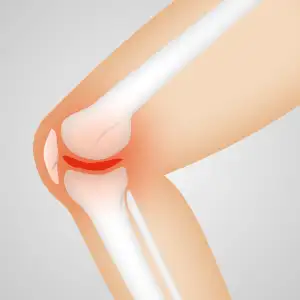Top Toothbrushes for Disabled Adults: Enhancing Oral Health for Special Needs

Maintaining good oral hygiene is crucial for overall health, especially for individuals with disabilities. However, many disabled adults face challenges when it comes to brushing their teeth effectively. This is where specially designed toothbrushes come into play, offering solutions to make oral care more manageable and efficient. In this article, we will explore the importance of oral hygiene for disabled adults and discuss the characteristics and types of toothbrushes that cater to their specific needs.
Importance of Oral Hygiene for Disabled Adults
**Importance of Oral Hygiene for Disabled Adults**
Maintaining good oral hygiene is crucial for everyone, including disabled adults. Poor oral health can lead to various issues such as gum disease, tooth decay, and even systemic health problems like heart disease. For disabled adults, who may already face challenges in daily activities, oral hygiene becomes even more critical. Neglecting oral care can exacerbate existing health conditions and impact overall well-being. Regular brushing and flossing can help prevent dental problems and promote better overall health for disabled adults.
Characteristics of Toothbrushes Suitable for Disabled Adults
When it comes to toothbrushes suitable for disabled adults, certain characteristics can make oral hygiene more manageable. These toothbrushes often have larger handles to provide a better grip for those with limited dexterity. Soft bristles are gentle on sensitive gums and teeth, while angled or flexible heads can reach difficult-to-access areas in the mouth. Some models also feature built-in timers or indicators to ensure thorough brushing sessions. Additionally, electric toothbrushes can be beneficial for individuals who may struggle with manual dexterity, as they require less physical effort to use effectively.
Types of Toothbrushes Designed for Ease of Use
When it comes to toothbrushes designed for ease of use for disabled adults, there are several options available that cater to different needs. Electric toothbrushes can be beneficial as they require less manual dexterity and can provide a thorough cleaning with minimal effort. Toothbrushes with larger handles or grips are easier to hold for those with limited hand mobility. Additionally, toothbrushes with angled or flexible heads can help reach difficult areas in the mouth more effectively. Some toothbrushes even come with built-in timers or reminders to ensure proper brushing duration. These specialized toothbrushes are designed to make oral hygiene routines more manageable for individuals with disabilities, promoting better oral health outcomes.
Considerations When Choosing a Toothbrush for Disabled Adults
When choosing a toothbrush for disabled adults, it is essential to consider the individual's specific needs and abilities. Look for toothbrushes with ergonomic handles that are easy to grip, especially for those with limited dexterity. Soft bristles are gentle on sensitive gums and teeth, reducing the risk of irritation. Electric toothbrushes can be beneficial for those who have difficulty with manual brushing, as they require less physical effort. Additionally, consider the size and shape of the toothbrush head to ensure it can reach all areas of the mouth effectively.
Tips for Caregivers in Assisting with Oral Hygiene
1. **Communication:** Ensure clear communication with the individual about the oral care routine to establish trust and cooperation.
2. **Patience:** Allow extra time for each oral hygiene session, understanding that it may take longer for individuals with disabilities to complete the task.
3. **Gentleness:** Use a soft touch when brushing teeth and gums to prevent discomfort or injury.
4. **Adaptability:** Be flexible in your approach, considering any physical limitations or sensory sensitivities the individual may have.
5. **Consistency:** Establish a regular oral care routine to maintain good dental health and prevent issues such as cavities or gum disease.
6. **Education:** Stay informed about any specific oral health needs related to the individual's disability and seek guidance from dental professionals when needed.
By following these tips, caregivers can effectively assist disabled adults in maintaining optimal oral hygiene, promoting overall health and well-being.
In conclusion, ensuring proper oral hygiene for disabled adults is crucial for their overall health and well-being. By using toothbrushes specifically designed for ease of use, caregivers can help individuals maintain good oral health independently. It is essential to consider the individual's needs and abilities when choosing a toothbrush. With proper guidance and support from caregivers, disabled adults can achieve optimal oral health, leading to improved quality of life and increased independence in daily activities.
Published: 12. 05. 2024
Category: Health



